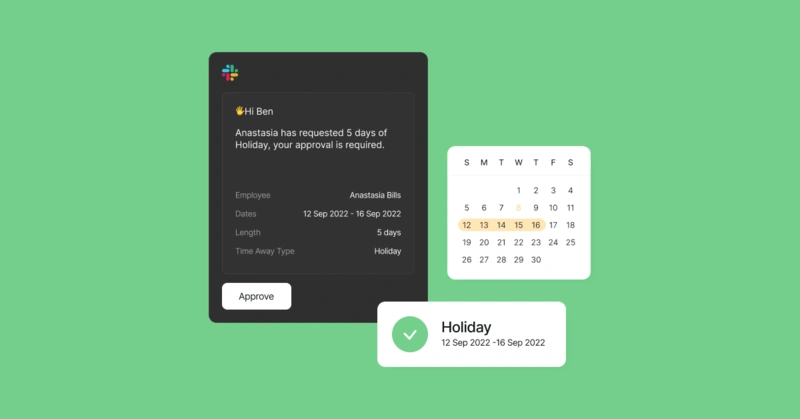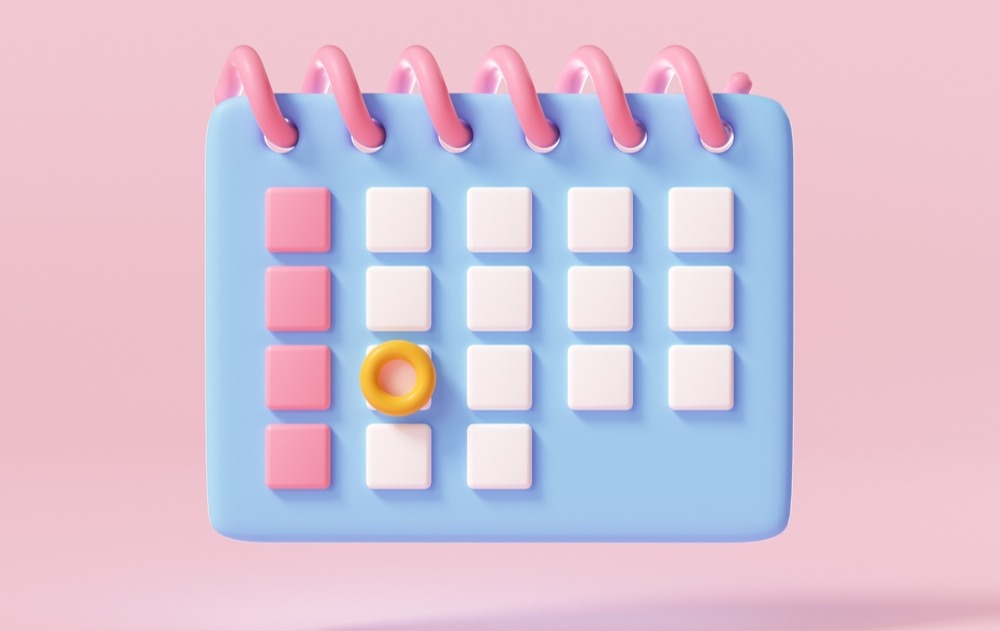Leave during probation: what you need to know
Probation periods at work are a chance for employers to assess a new hire’s suitability for the role before properly confirming their position. As a result, it’s easy to presume that during probation periods, employees are not entitled to take leave.

However, that’s not always the case. In this blog, we’ll explain employee rights during probation periods, and how this applies to taking different types of leave.
What is a probation period UK?
Before we look at taking leave during probation, let’s take a quick look at what probation actually is.
Probation is the name for a type of ‘trial period’ at the beginning of employment. This gives you the chance to assess whether a new hire is a good fit before committing.
It’s important to know, however, that a ‘probationary period’ is not formally or explicitly recognised under employment law. Instead, a probationary period only exists if it is explicitly stated in your employment contract.
Standard Probation Period UK
It’s fairly common across the UK for employers to include different contractual terms (that tend to be less favourable to the employee) during the initial probationary period. However, these terms cannot conflict with or seek to strip the employee of their statutory rights.
The length of your probationary period must be laid out clearly in your contract too. They typically last between three and six months. If you want to extend an employee’s probationary period, you will only be able to do so if your employment contract explicitly gives you that right.
What rights do employees have during probation?
Even if an employee is still on probation, they are still entitled to all their statutory employment rights. This means that they have the right:
- To be paid the national minimum wage & statutory sick pay,
- To take maternity and paternity leave and emergency leave for dependents
- To protection from unlawful discrimination
- To properly itemised pay slips
- To accumulate paid holiday entitlement
Fixed-term contracts & probation
Fixed-term contracts and probation periods are closely related in some circumstances. That is why it can be confusing to understand the differences between them.
This is because many employers choose to bring new hires onboard using a fixed-term contract that lasts for a short period. Since the fixed-term contract will end automatically on the agreed end date, employers can use this as a way to terminate employment if the employee in question has not performed as expected, if they want to bring someone on board for a particular project or to cover absences.
However, employers should be aware that they must give at least 1 week of notice if the employee has been working continuously for a month or more. In addition, it is important to end a fixed-term contract following proper legal procedure to avoid liability.
Confusingly, it is also possible to include a probationary period in a fixed-term contract. All you need to do is stipulate the length of the probation in your employment contract ensuring that it is not the total length of the fixed-term contract.
Types of leave during the probation period
As we mentioned, although an employee may still be on probation, this doesn’t exclude them from being able to take leave. Here’s a guide to different types of leave during probation.
Sick leave during the probation period
Even if an employee is on probation, they can still take sick leave. Additionally, employees on probation also qualify for statutory sick pay (SSP). Since they automatically fulfill the criteria of:
- Having an employment contract
- Doing some work under their contract
If they’ve been sick for more than 4 days and earn an average of at least £123 a week, then they can receive sick pay.
Maternity & paternity leave during probation
Employees on probation can still take maternity leave. Paternity leave is a little more complicated.
Maternity leave
Employees can take maternity leave during their probationary period, as long as they give you the appropriate amount of notice. As outlined on the government website, their length of service and the amount of work they have done for you does not matter. However, employees on probation may not be eligible for Statutory Maternity Pay (SMP) because they need to have worked for you ‘continuously for at least 26 weeks’.
Paternity leave
In order to take paternity leave during probation, an employee needs to:
- Give you the correct notice
- Have continuously been working for you for a minimum of 26 weeks up to the 15th week before the due date
Since probation periods typically last 3 – 6 months, it’s unlikely that a probationary employee will fulfil this criteria.
Time off for dependents
All employees are entitled to take reasonable time off to deal with emergencies that involve a dependant. There are no limits to the number of times that an employee can take this kind of time off work.
As such, employees can still take time off for dependents during their probation period as long as it is reasonable.
Paid holiday entitlement during UK probation period
Although an employee may join your company on probation, they actually start to accrue paid holiday entitlement from their first day. This means they start accumulating their statutory entitlement of 5.6 weeks of paid holiday from the start of their probation period at work.
How to dismiss an employee after the probation period in the UK
Although probation periods are intended as a sort of trial period, employers still need to be meticulous about how they handle dismissing employees that don’t pass probation. This is because even if an employee is on probation, they can still bring a claim of unfair dismissal against you.
It is important to follow through on proper procedure if you want to terminate a probationary employee’s contract. Here is a brief summary of what this looks like:
- Organise a probationary review. Make sure to communicate the nature of the meeting, explaining that you are considering dismissing them. Remind them of their right to bring a colleague or trade union rep to the meeting.
- Conduct the meeting. Explain why you are considering dismissing them (gross misconduct, inadequate performance) and support your intention to dismiss with evidence.
- Ensure you give them an opportunity to respond.
- Decide whether you want to dismiss them or extend their probation.
- Communicate your decision in writing. You should explicitly state your decision and the reasons for it.
How Zelt can help you manage probation periods
Keeping track of your team’s probation periods is essential to making sure you schedule feedback meetings in advance and giving yourself ample time to communicate the outcome of the probation to your employees. This should give you the chance the end employment with any employees who didn’t meet your expectations, without getting caught up in unnecessary complications or prolonged notice periods.
A modern HR system like Zelt helps you to easily keep track of key dates for your team including probation periods, anniversaries and vesting cliffs. Rather than manually updating your calendar and setting reminders, get notified of upcoming dates in Slack or Teams, or integrate Zelt right into your calendar.
Frequently Asked Questions
How to leave a job during probation period?
Another common concern of employees is whether they can leave their position during their probation period.
Can I leave my job if I’m on probation?
Quitting during a probation period in the UK is common. However, you’ll need to check what your employment contract says in relation to how much notice you need to give your employer. If it does not mention a specific notice period and you have been there for longer than a month, you need to give one week of notice. If you’ve been in your job for less than a month, you don’t need to give notice.
Do you have to give notice during the probation period UK?
As above, it depends on how long you’ve been in your job even if you’re on probation. Check your employment contract to ensure that you won’t be in breach of contract.
Can I take time off in lieu (TOIL) during the probation period UK?
Companies should have a well-defined time off in lieu policy that is also specified in employment contracts. The policy or the employment contract should state when a employee is eligible to take TOIL.
Can your employer extend your probation period?
Yes your employer can extend your probation period as long as it’s made clear in your employment contract that or as long as they’ve have reached an agreement with you to do so.
Does my employer have to include a probation period?
There’s nothing in UK employment law which states an employee must have a probation period when starting a new job. However, if an employer does opt for a probation period then it must be clearly defined in the employment contract.



